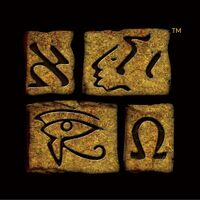
FAIR is a non-profit organization dedicated to providing well-documented answers to criticisms of the doctrine, practice, and history of The Church of Jesus Christ of Latter-day Saints.
Jump to details:

Terryl Givens notes,
[A]lthough the content of the Alma conversion story suggests to some the influence of contemporary conditions, the account as narrated in the Book of Mormon exhibits a complex structure of inverted parallelism or chiasmus that has been persuasively connected to ancient Old World forms....The same story, in other words, is invoked as telling evidence of both nineteenth-century composition and authentically ancient origins. [Blake] Ostler sees an example of such divergent readings in King Benjamin's great temple speech (Mos 2-6), that incorporates elements common to Methodist camp meetings, but at least as convincing are more than a dozen formal elements of Israelite covenant renewal festivals contained in the speech.[1]
Stephen D. Ricks,
The first six chapters of Mosiah are remarkable in several ways....They also give us a picture of how Mosiah succeeded his father, Benjamin, to the Nephite throne. Many features of the ceremony that was involved reflect the traditions of ancient Israelite culture. First is the significance of the office of king. Second is the coronation ceremony for the new king. The details of this ceremony have parallels in Israel and other ancient Near Eastern societies and even in other parts of the world. Finally, the order of events reported in these chapters reflects the "treaty-covenant" pattern well known in ancient Israel and the ancient Near East. [2]
Part(s) of this issue are addressed in a FairMormon video segment. Click here to see video clips on other topics.

FAIR is a non-profit organization dedicated to providing well-documented answers to criticisms of the doctrine, practice, and history of The Church of Jesus Christ of Latter-day Saints.
We are a volunteer organization. We invite you to give back.
Donate Now